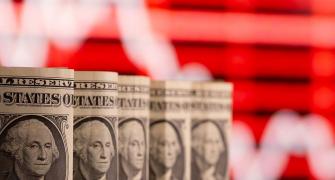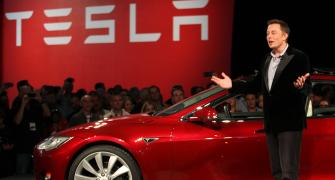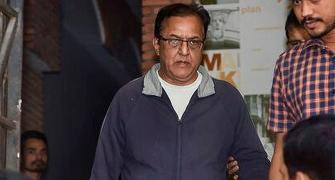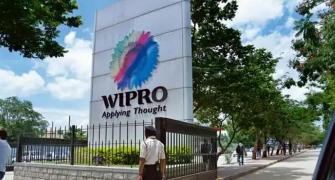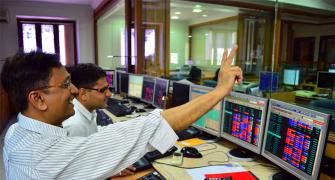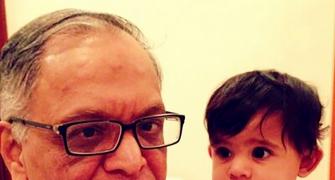As China's top leaders trooped to the podium at the annual National People's Congress from March 5 to 13 to outline strategies to keep China afloat amid the global economic crisis, they held back one dirty little secret: The crisis is the best thing to happen to the Chinese government in a long, long time.
While other governments quail in the face of economic hardship, the Chinese Communist Party performs best when in crisis mode. After all, this is a government that came to power on the tide of revolution in a country whose history coils around millennia of uprisings. The Party still has that in its genetic code, and its chief motivator always comes down to fear of popular unrest.
Of course, in China's boom years, Party officials could let down their guards. City dwellers were making a killing and as they were buying cars, homes and golf course memberships, global demand for Chinese exports continued to explode--both factors that created plentiful work for peasants in coastal factories or at urban construction sites.
In those days, the Chinese citizenry was too distracted by its own unprecedented rise in prosperity to spend much time dwelling on why the local party chief was driving a BMW to his marble office building, drinking $1,500 bottles of 50-year-old rice wine and wearing fine suits and swanky watches.
This all came to a head in 2008. Just as the last two decades created the unimaginable wealth that made possible a spectacular Olympics and the first Chinese astronaut to walk in space, it also created dangerous imbalances that began to surface as the year wore on. The government struggled through paralyzing snowstorms, riots in Tibet, an earthquake in Sichuan and the abrupt shift from soaring growth to precipitous downturn and a 65 per cent slide in stock prices.
Meanwhile, the government had to confront toxic air and water created by years of industrial excess, a spate of tainted food incidents caused by entrepreneurial avarice and increasingly heated protests by peasants and migrant workers enraged by the gaping rich-poor, urban-rural divide.
The shameful state of rural education, health care and social welfare were brought into prime-time TV focus as the bodies of thousands of dead children were dragged from the rubble of Sichuan schools built on a base of what the Chinese call "tofu" concrete, chicken wire and unforgivable corruption, as builders grew wealthy producing what amounted to death traps.
Now, with global orders for goods plunging, unemployment rising and factories closing, the cracks underlying China's nearly three decades of spectacular growth are becoming increasingly visible: inequality, corruption, injustice and pollution. As Minister of Environmental Protection Zhou Shengxian recently put it, "Driving BMWs and drinking polluted water is the bitter irony of our modernization."
Like Zhou, China's top leaders are very aware that, in the wake of overindulgence and scant investment in social welfare, the Party has no credibility other than providing strong growth and economic opportunity. The paradox of 30 years of transformational economic growth is that China's Communist Party now runs scared of its own people's expectations.
President Hu Jintao and Premier Wen Jiabao are keenly aware of this. Having both worked in poor provinces, they are no strangers to China's new sources of social unrest. Bloggers regularly embarrass the Party by posting cellphone photos of local Party chiefs sporting luxury goods and slinky mistresses.
Stubborn lawyers sue the government for redress on behalf of workers mangled by shoddy machines and peasants trampled by crooked developers. Homeowners use text messages to organize "stroll about" street protests that stymie government projects threatening their property rights.
Messrs. Hu and Wen came into office in 2003 with a stated agenda of tackling the unfinished part of the country's modernization: sustainable development and social justice. But times were incredibly good--the country was reporting the highest sustained gross domestic product growth in the history of the world--and Hu and Wen lacked real traction for their goals of improving the fortunes of farmers and migrant workers. This was mainly because their Communist Party underlings were too busy enjoying the spoils of success, and what reforms were adopted often were only half-heartedly implemented, at best.
While Mao and Deng Xiaoping could crack a whip on the Party, Messrs. Hu and Wen all too often found themselves pushing on a string. Their plan to eliminate all taxes on farmers merely inspired local officials to find new ways to pick the peasants' pockets. Worker safety, health and work-hour improvements brought forth "Potemkin" factories for inspectors while migrants toiled in unregistered sweatshops day and night. Factory effluent controls created clandestine after-dark dumpings of the poisons plaguing downstream villages. Initiatives for Party officials to reveal all assets were blithely ignored.
The quirks of China's political system are responsible for a good bit of this. Unlike in the U.S., where the president enjoys legitimacy based the capture of popular favor after a grueling election, China's leaders pick themselves and must therefore build legitimacy--in part by gaining public trust and in part simply by replacing the appointments of their predecessors.
This means that during its first five-year term, while still in the process of rotating in political allies, a Chinese administration is essentially a lame duck. Added to this is the fact that Messrs. Hu and Wen have less clout than their predecessors, as the modern Communist Party only moves after consensus has been reached among a large and diverse group at the top, including state business executives, come-from-nothing cadres who climb the party ladder, the sons and daughters of the Communist aristocracy and even an assortment of old leaders who hang on by their fingertips. But in this crisis, Party consensus is instinctive. The elite know that they either hang together or hang separately.
Now that Hu and Wen are in their second term, they have replaced many of the previous administration's appointees, finally giving them the means to enforce decisive action. The financial crisis has forced local Party officials to grasp that their fates rest on the success of collective government effort, giving Hu and Wen clout that they have never had before.
Even more than President Barack Obama, Messrs. Hu and Wen now have the opportunity to use this global economic meltdown to realign the Chinese economy and society in a sustainable way. And by corralling the myriad Party officials and directing them toward solving the economic problems that threaten their own legitimacy, the central government may bring more pressure to bear on corrupt officials who in the past have found profitable ways to thwart the Party's reforms.
In his annual report to the NPC, Premier Wen said that he was banking on China's "unique political and institutional advantages that enable us to mobilize resources to accomplish large undertakings."
There is much, however, that needs to be done. Rural China desperately needs hundreds of billions of dollars of infrastructure to build roads, schools, hospitals, bridges and many other structures that don't currently exist. Social security, health insurance and disability plans must be developed before China's parsimonious citizenry will be willing to begin spending some of the 40% of their income they now save as protection against personal catastrophe.
Stimulus efforts to create jobs outside the big cities and closer to the homes of China's poorest are needed to help heal the festering psychological sores in rural areas where tens of millions of children have been essentially abandoned by many of the 130 million migrant workers who have moved to distant coastal cities.
If Messrs. Hu and Wen can seize the financial crisis to help push through policies addressing these problems, they hope to realize an enduring Party goal: to create a permanent one-party state that, like its imperial forbearers, can respond to people's needs without the divisiveness of public debate and elections. While the political implications may be distasteful to many, the Party believes it can outrun pressures for democracy through reform and performance.
Once it has the motivation, China certainly has the means to move forward. With $2 trillion in foreign exchange reserves and a nearly balanced budget, China can purchase the natural resources and advanced technology this resource-poor and innovation-challenged country lacks--and do it at fire-sale prices.
As Mao used to say: "Under heaven, all is in chaos. The situation is excellent."
James McGregor is a journalist and author turned businessman and two-decade Beijing resident who is CEO of JL McGregor & Company, an independent research firm.



